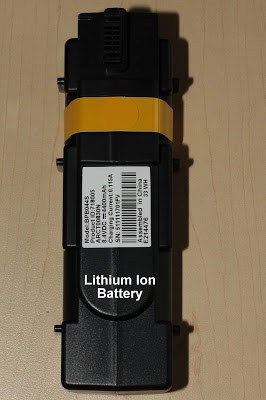
Circling…
While tens of thousands of customers in the southeastern United States might describe the quality of Windstream service as something to avoid stepping in, turkey buzzards are generating plenty of the real thing in Nebraska, creating two major headaches for the independent telecom company.
As of this afternoon, at least 30,000 Windstream customers in the southeast U.S. cannot make or receive long distance or toll-free calls without encountering a fast busy signal or an intercept recording. In case callers forget what a regular busy signal sounds like, one can be heard by dialing Windstream’s national customer support number, which is overwhelmed with complaint calls from annoyed customers.
“Windstream’s network operations and engineering teams are working a widespread outage affecting long-distance and toll-free call processing,” Windstream customer support acknowledged this afternoon. “This has also affected inbound calling to our support centers. An estimated time for restoral is not known.”
That is not good enough for Windstream customer Megan Short. Anyone calling her business number is likely to hear a Windstream recording telling callers: “The number you have reached is not in service, disconnected, or has been changed.”
“I am trying to run a business here, and this issue needs to be resolved ASAP,” she wrote on the company’s Facebook page. “This is your job, you know. You have ONE JOB.”
Other customers are complaining the outage is affecting local calls as well.
Veterinary Ophthalmology Services near Nashville is having a very quiet Monday with “few calls in or out, so it can’t be just long distance numbers. The majority of our clients are local.”
The employees of Don Meyler Inspections had plenty of free time to inspect the morning newspaper, afternoon lunch, and their frustration level, because the phones simply are not ringing in south Florida either.
“We’re severely impacted for inbound calls and outbound is sporadic,” the company writes on DownDetector.com. “It is the worst outage we’ve had in six years.”
Those tenacious enough to wait for customer support are not exactly getting total customer satisfaction:
“The big kicker was being on hold with the online chat for over an hour only to inform me there was ‘a high call volume’ and then the chat session ended,” said Chad Spaulding in Louisville, Ky. “You can’t even reach the corporate office for support. This is the fourth outage in our area in two months.”
With outages like this, some might thing the buzzards would be circling, and in Beatrice, Neb. they literally are, according to the Omaha Herald-World, fouling Windstream-provisioned Verizon Wireless cell towers where the federally protected birds favor building their nests.
Windstream’s John Dageford presented the company’s solution to the annual poo-problem from the birds: shoot them.
Dageford thinks if someone kills a handful of the large birds, the rest will flee in terror.
The Beatrice council reserved its decision on how to proceed for now, although a number of Windstream customers affected by today’s outage may not.


 Subscribe
Subscribe AT&T is seeking freedom from regulation, oversight and the right to abandon its landline network with the assistance of Connecticut legislators who modeled a state deregulation measure on recommendations from the corporate-funded, AT&T-backed, American Legislative Exchange Council (ALEC).
AT&T is seeking freedom from regulation, oversight and the right to abandon its landline network with the assistance of Connecticut legislators who modeled a state deregulation measure on recommendations from the corporate-funded, AT&T-backed, American Legislative Exchange Council (ALEC).
 More than six months after Hurricane Sandy did her handiwork on coastal New York, New Jersey and Connecticut, hundreds of residents are still getting phone bills from Verizon for phone and Internet service they have been without since Halloween.
More than six months after Hurricane Sandy did her handiwork on coastal New York, New Jersey and Connecticut, hundreds of residents are still getting phone bills from Verizon for phone and Internet service they have been without since Halloween. Verizon’s response has mostly been shrugged shoulders and no firm estimate of when service will be repaired.
Verizon’s response has mostly been shrugged shoulders and no firm estimate of when service will be repaired. At least 11 percent of Time Warner Cable phone customers nationwide are into their second day without phone service due to an unspecified outage.
At least 11 percent of Time Warner Cable phone customers nationwide are into their second day without phone service due to an unspecified outage.
